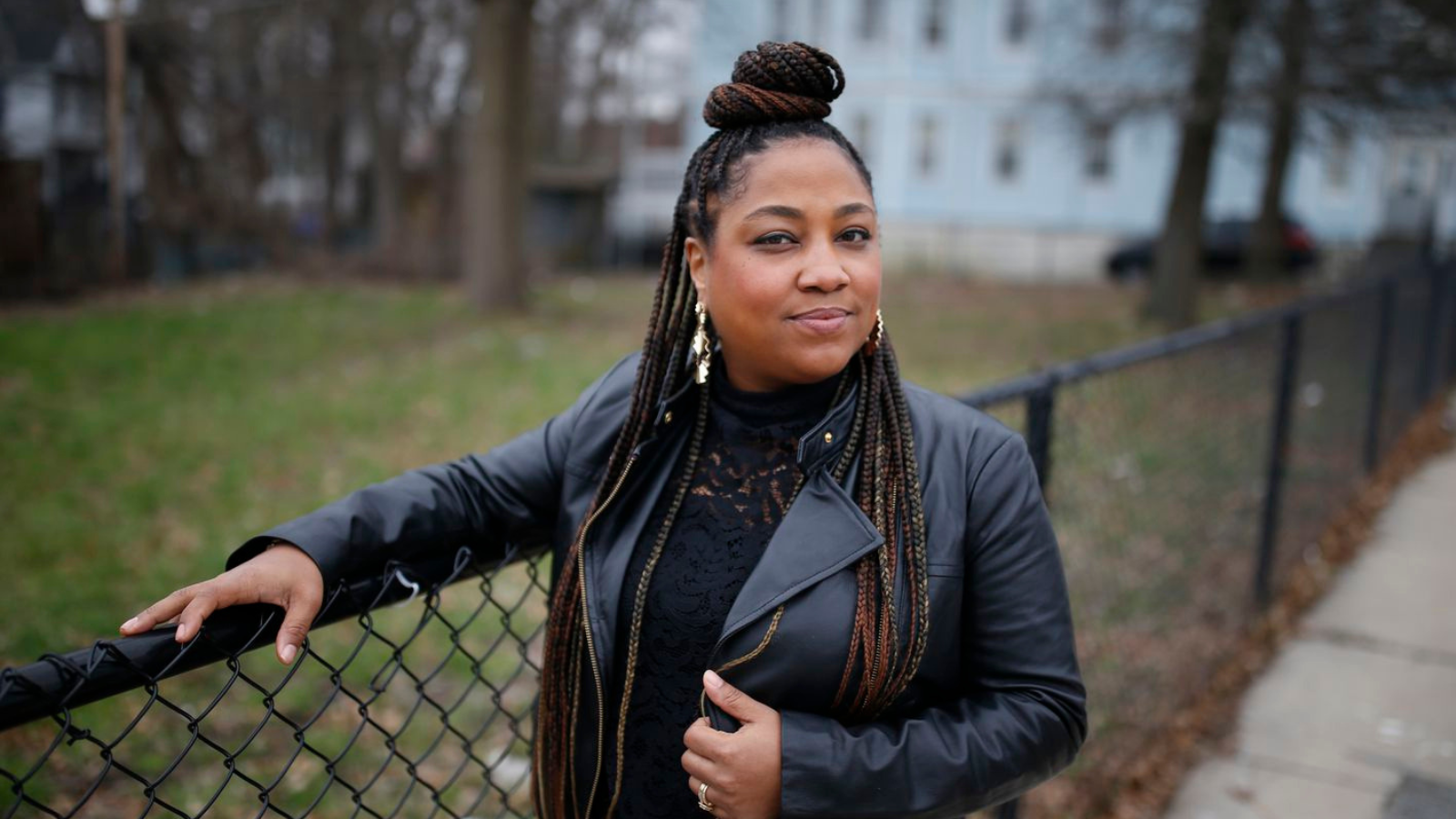DVM Consulting Corp Secures Key Financing for First Development
DVM Consulting Corp recently closed with LISC Boston on key early stage financing to build affordable housing on five city-owned parcels near the intersection of Blue Hill Avenue and Fabyan Street in the Mattapan neighborhood in Boston. DVM Consulting Corp’s founder and owner Dariela Villon-Maga was designated to develop the parcels under the first Request for Proposals (RFP) issued by the City of Boston under its Blue Hill Avenue Action Plan.
“I can’t tell you how important it’s been to have LISC in our corner, being able to be flexible, thinking differently about predevelopment financing,” says Villon-Maga. Speaking to how investing in emerging developers of color has the potential to be transformative, she says, “I’m not sure if we would have had what we needed to bring this project across the finish line if it weren’t for LISC taking a chance on us. This is the way that real change can happen.”

Photo Credit: The Boston Globe, courtesy of Dariela Villon-Maga.
Villon-Maga grew up just blocks away from the development site in affordable housing and has ten years of experience creating and preserving affordable housing, working with and for other developers and nonprofit organizations. This project represents her first time developing on her own, and she acknowledges that she was anxious about obtaining financing. “I have the skills, I have the relationships – both within the financial sector and within the community - but I don’t come from wealth, so there was just a real concern about how I would secure financing to make this happen.”
The financing from LISC is a $750,000 predevelopment loan to fund architectural plans and pay consultants needed to secure permits and financing for the construction of three buildings consisting of 30 units of affordable homes and commercial space. Of the 30 homes, 18 will be homeownership units and 12 will be rental units. DVM Consulting Corp plans to lease the commercial space to local businesses.
Download the Full Press Release
Villon-Maga was selected in December 2021 to build on five city-owned parcels offered for disposition and redevelopment pursuant to the first phase of the City’s Blue Hill Avenue Action Plan. The initiative seeks to spark economic development, create business opportunities and foster entrepreneurship along the Blue Hill Avenue corridor via the disposition and development of thirty city-owned vacant parcels. Villon-Maga’s vision for the parcels she has secured includes artist live-work space, as well as makerspace and exhibition space. In recent profiles of her and her company in the Boston Globe and the Dorcester Reporter, Villon-Maga shared her vision, motivations and goals for creating developments her community wants and how she has be sure to respond to her neighbors’ feedback.
“Dariela is part of a vanguard of emerging developers of color who are stepping up to transform sites in the communities they live in and grew up in,” LISC Boston Executive Director Karen E. Kelleher says. “The City is creating opportunities for a new generation of developers of color to shape the future of their neighborhoods and change the face of real estate development in Boston. LISC sees its role as working to extend the real estate ecosystem to support their success and to build.”
"The Mayor's Office of Housing is grateful that LISC is providing Dariela Villón-Maga's firm, DVM Consulting Corp, with critical predevelopment funding," said Sheila Dillon, Chief of Housing and Director of the Mayor’s Office of Housing (MOH). "This funding will allow DVM Consulting Corp to advance this important mixed-use development that will create both affordable homeownership and rental housing and commercial space that will support local businesses. MOH designated DVM Consulting Corp to develop five City-owned parcels at the corner of Blue Hill Avenue and Fabyan Street. This designation is part of a larger initiative to dispose of City-owned land on Blue Hill Avenue and adjacent streets for community supported development."
Blue Hill Avenue is the commercial corridor that runs through the historic home of Boston’s Black community and the immigrant populations from the Caribbean and Cape Verde. After decades of disinvestment following the redlining of the Mattapan, Dorchester, and Roxbury neighborhoods of Boston, new investment along Blue Hill Avenue began in the early 1990s, with a number of communities organizing Boston Main Streets districts to spur economic activity and return vibrancy to their neglected business districts.
As a continuation of decades of community advocacy and organizing, the Mayor’s Office of Housing (MOH) formerly the City of Boston’s Department of Neighborhood Development (DND) initiated the Blue Hill Avenue Action Initiative (the Initiative) in 2020. The purpose of the Initiative was to take a holistic approach to the disposition and development of 30 city-owned vacant parcels along the corridor with the intention of maximizing equity and inclusion of historically underrepresented residents and businesses to seed community ownership, re-establish community-based shopping districts with anchor retail, and support the creation of affordable home-ownership. MOH has partnered with Community Development Financial Institutions (CDFIs) like LISC to host a series of convenings on accessing financing and provide pro bono office hours for prospective developers.